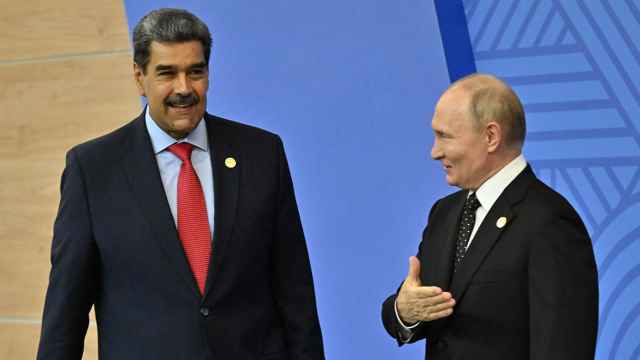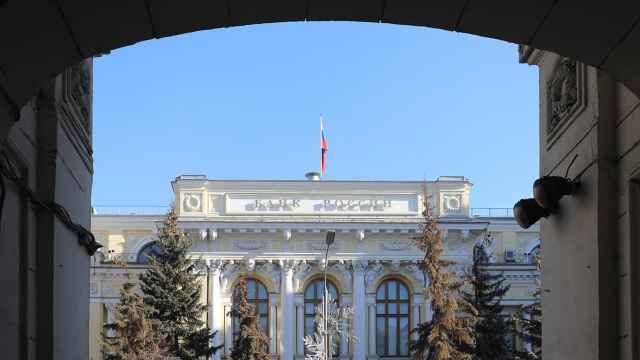Correction appended.
Rural schoolteacher Ilya Farber was released on parole Friday after spending more than two years in jail for a bribery conviction that followed his move to a Russian village in a bid to bring culture to the provinces.
Ilya Farber, whose case has become a cause celebre for many opposition activists, said on leaving his detention facility that he intends to work on human rights issues now that he is free.
Farber, a 36-year old former designer, who was known for wearing a flamboyant, flowing white shirt and his hair in a ponytail during his trial, left Moscow for the village of Moshenkа in central Russia in 2010 to teach art, music and literature.
He has been compared by the media to participants in the 19th-century "to the people" movement, in which Russian intellectuals left their city homes for the provinces in an attempt to bring education and culture to the peasantry and bridge the chasm between urban and rural life in Russia that persists to this day.
Farber was accused of taking a bribe in 2011 from a company he contracted to renovate Moshenkа's town hall.
He has always denied the charges, maintaining he was framed by a dishonest contractor, who was never charged over the incident.
Eventually convicted by a local court on the bribery charges, Farber was sentenced to eight years in a maximum security prison in August 2012 and fined 3.2 million rubles ($96,000).
The total loss to Moshenka's budget was 940,000 rubles, according to the court ruling.
The verdict was widely criticized in the media and by Farber's supporters, including anti-Kremlin activists, as excessively harsh.
Farber's prison term was reduced to seven years and one month shortly after his original trial. Last month a regional court halved his sentence, making him eligible for parole that was granted on Dec. 31.
Correction: An earlier version of this story incorrectly identified the name of the village where Farber worked as Moshenki, instead of Moshenka.
A Message from The Moscow Times:
Dear readers,
We are facing unprecedented challenges. Russia's Prosecutor General's Office has designated The Moscow Times as an "undesirable" organization, criminalizing our work and putting our staff at risk of prosecution. This follows our earlier unjust labeling as a "foreign agent."
These actions are direct attempts to silence independent journalism in Russia. The authorities claim our work "discredits the decisions of the Russian leadership." We see things differently: we strive to provide accurate, unbiased reporting on Russia.
We, the journalists of The Moscow Times, refuse to be silenced. But to continue our work, we need your help.
Your support, no matter how small, makes a world of difference. If you can, please support us monthly starting from just $2. It's quick to set up, and every contribution makes a significant impact.
By supporting The Moscow Times, you're defending open, independent journalism in the face of repression. Thank you for standing with us.
Remind me later.





